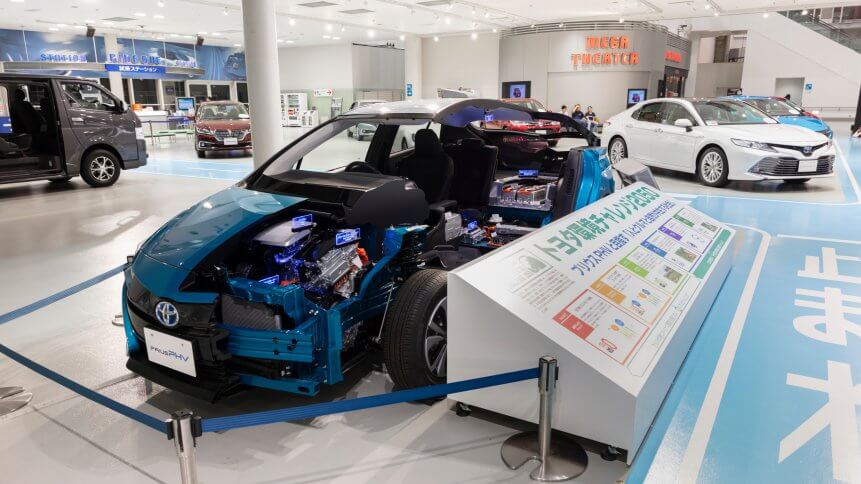Blockchain in the supply chain? Toyota thinks it’s a game-changer

Japanese automaker Toyota, Monday, launched its Toyota Blockchain Lab, with plans to move forward initiatives using blockchain technology with external partner companies.
Though the legacy carmaker has been exploring the applications of distributed ledger technology (DLT) since April 2019, its progression has been kept under the radar until recently.
To date, the automobile giant announced its push for new collaboration following internal group testing, which includes six Toyota companies worldwide. The new global collaboration will call for verification of the technology’s benefits that can be applied for various regions and markets.
Toyota’s plans for blockchain
In its press release, Toyota said the main applications of the technology encompass four key areas — customers, vehicles, supply chain, and value digitalization.
Toyota envisions a more transparent and secure manner in handling sensitive information regarding customers and vehicles. By embracing blockchain technology, the sharing of customer data and vehicle contract becomes more convenient and accessible to all relevant parties. For vehicle maintenance, the improvement of such services is set as DLT enables the documentation of all information convening the product life cycle.
In a bid to connect the supply chain, the automaker is working towards improving business processes with an added layer of transparency and traceability. By sharing information on the manufacturing, shipping, and selling of parts, the Japanese company aims to instill ‘value digitalization’ to develop long term relationships with stakeholders.
Toyota’s fast track on DLT is highly likely to be accelerated by the testing of mobility solutions from the debut of the Woven City (the carmaker’s smart city initiative) announced in January.
Toyota’s vision of collaboration between businesses can be translated to a more connected supply chain, from manufacturer to customer and bears high potential in revolutionizing the automotive industry.
The product life cycle is clear as information such as manufacturing date and details will be stored in the DLT before moving into the suppliers’ hands. As vital information is time-stamped and securely stored, it is impossible to tamper with the data.
YOU MIGHT LIKE

How will AI impact the automobile industry?
Easier and more secure ‘transfer of rights’ will benefit both industry and consumers. As an example, used car sales are able to validate the conditions of vehicles before selling it and have digital evidence for costumers to verify.
Besides a more seamless experience of transferring car ownership, the value of DLT in recording ‘maintenance data’ is opening up new avenues for automakers.
French automaker Renault adopted blockchain to pilot a digitized car maintenance program, which allows the storage of car repair and maintenance data in a single place. This initiative calls for more efficient warranty management and tracking of a vehicle’s condition, closing the loop in the product life cycle.
In a similar capacity – and demonstrating how serious a consideration blockchain has become for supply-chain tracking – aerospace giant Boeing recently announced a partnership with computing giant Honeywell, utilizing its blockchain platform to power its sale of airplane parts worth US$1 billion.









